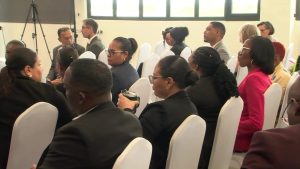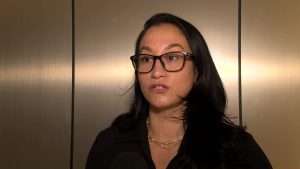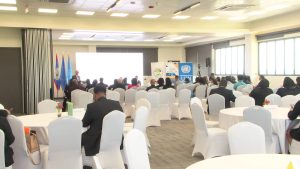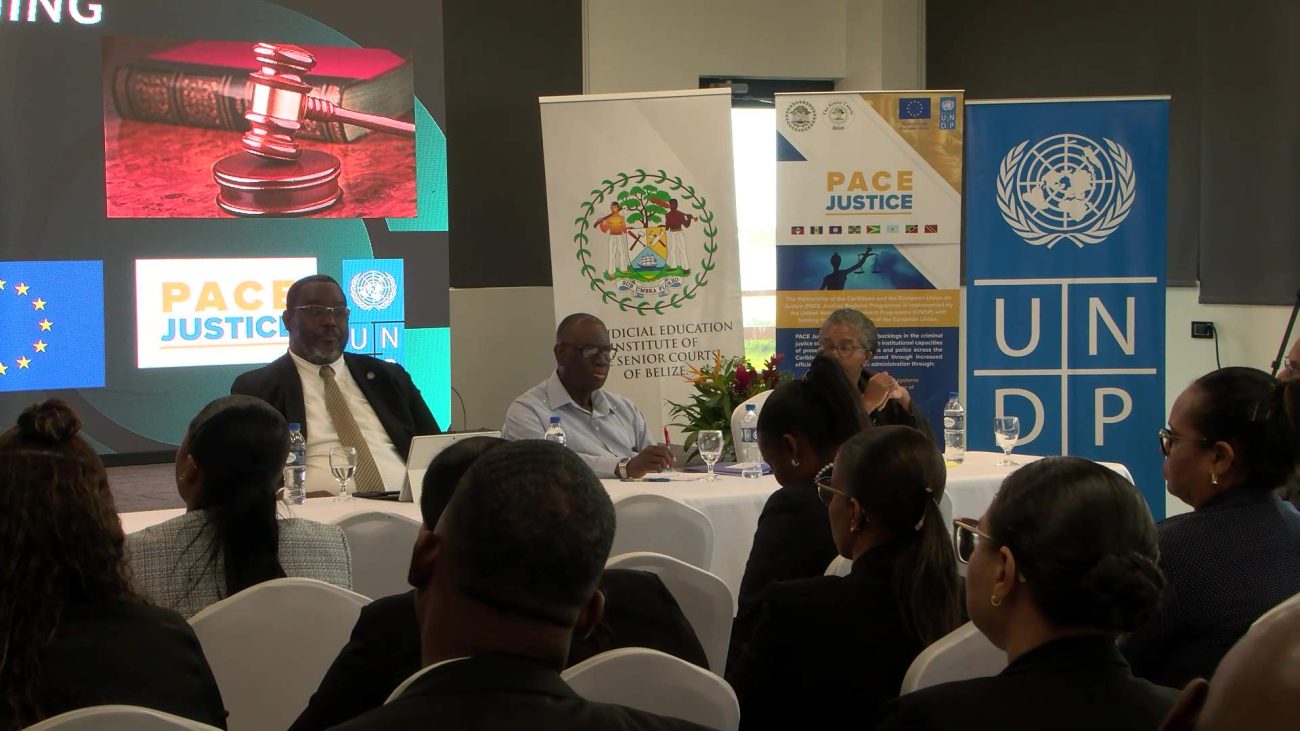Belize’s Courts Push for Faster Justice with New Case Management Training
In a major step toward judicial reform and professional development, Chief Justice Louise Blenman, in partnership with the Judicial Education Institute and the U.N.D.P. PACE Justice Project, has launched a two-day seminar on case management within the courts. The training brings together magistrates, judicial staff, and international experts to strengthen operations in the Magistrates’ Courts. Here’s News Five’s, Zenida Lanza with the story.
 Zenida Lanza, Reporting
Zenida Lanza, Reporting
A major push is underway to improve case management in the magistrate courts. On the second day of the training seminar, magistrates and judicial staff took part in a workshop aimed at cutting backlogs and speeding up access to justice. Experts from the region and abroad shared tools on digitization and efficiency. Chief Magistrate, Deborah Rogers, says support from the PACE Justice Project benefits the judiciary at every level.

Deborah Rogers
Deborah Rogers, Chief Magistrate
“We are taking on a more customer-centered approach, how the users of the public relate to the processes that we have to engage in. How do they play their role in the criminal justice system? And a big part of that for unrepresented persons is that it gives us an added responsibility as magistrates to meet them halfway. Engage with them, explain the law to them, explain the process to them. So PACE Justice really pushes that incentive, and by us creating training programs like these, we’re able to enhance our capacity. We get to build our network with other donors. And we’re very grateful to UNDP and PACE Justice for giving us another opportunity to expand our capacity and reach.”
While the courts still rely heavily on paper, a case management system is in place and will be used more effectively to track backlogs and provide better data. Each district, however, has its own unique challenges, meaning solutions must be tailored rather than one-size-fits-all. UNDP Team Lead, Amilin Mendez, says digitization will play a key role in bettering the system.

Amilin Mendez
Amilin Mendez, Team Lead, UNDP
“What we’re looking at in terms of next steps is e-payments as a first step, and a second action would be specifically creating a website for the magistrate court. In terms of upgrading the system for the judiciary, that would take a little bit more time, but we’re still in that planning and discussion phase. It’s not a one-year approach, and the heart of digitization is culture change, because if I’m working paper-based for so many years, I’m comfortable with that, right? So, we now need to go into that digital era. But it really, really is dependent on persons within the court system and persons as clients, if you’re already used to coming in and we’re telling you now, you’re doing online banking. So that’s part of the process of digitization.”
 Trainings like these give Belize a chance to learn from other countries and figure out what works best here at home. But turning those lessons into real change? That’s a bit more challenging. Chief Magistrate Deborah Rogers admits that it’s an ongoing process.
Trainings like these give Belize a chance to learn from other countries and figure out what works best here at home. But turning those lessons into real change? That’s a bit more challenging. Chief Magistrate Deborah Rogers admits that it’s an ongoing process.
 Deborah Rogers
Deborah Rogers
“It’s an ongoing process for us. We have our monthly reports as magistrates. We try to meet at least every quarter of the year, although it’s a bit difficult. But that is how we’re able to assess our progress. We exchange ideas. Our clerks are always in communication. So it’s impossible for us to give a set timeline. Matters are always coming in. The workload is always changing, and we’re always striving to improve our backlog. The court will always have backlog. The court will always have backlog. I’m not going to give people unrealistic expectations, but as judicial officers, we have a duty to ensure that matters are processed efficiently and timely.”
This seminar reflects the judiciary’s commitment to continuous professional development and to upholding the highest standards of judicial service in Belize. Reporting for News Five, I’m Zenida Lanza.






Facebook Comments